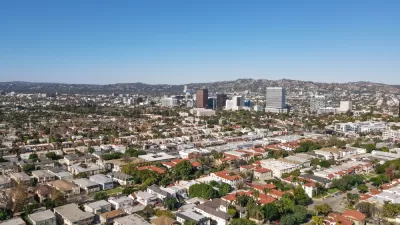Urban Planning has become increasingly complex with the rise of big data, inflating costs, diverging politics, and the advent of new technologies. To work with all these elements requires an inclusive approach to produce a useful outcome.
After spending hundreds of hours working with community groups, holding countless meetings, and creating designs for a new project, it is absolutely crushing to find that project either completely rejected or modified so much that it can't function.
Author Mitchell Sutika-Sipus argues that this common experience can be remedied by building flexibility into our planning proposals, using what he calls the "Integrated Planning Process." He describes this process as a way to map and align different variables to "reveal to stakeholders and participants what is essential, what is not, impose more clarity, and save time by providing alternatives for individual components."
Borrowing from the field of Product Design, Sutika-Sipus argues that the Integrated Process, while imperfect, can result in "flexible proposals designed to contend with external demands," creating "a more robust outcome." He continues, "[i]f a development scheme consists of the insights of stakeholders, but has the ability to fluidly accommodate the organization structure of government and implementing partners, the final result will be more value-laden for the target population and for the neighborhood."
Thanks to Mattew Wolfe
FULL STORY: An Integrated Process for Better Urban Planning

Alabama: Trump Terminates Settlements for Black Communities Harmed By Raw Sewage
Trump deemed the landmark civil rights agreement “illegal DEI and environmental justice policy.”

Study: Maui’s Plan to Convert Vacation Rentals to Long-Term Housing Could Cause Nearly $1 Billion Economic Loss
The plan would reduce visitor accommodation by 25% resulting in 1,900 jobs lost.

Why Should We Subsidize Public Transportation?
Many public transit agencies face financial stress due to rising costs, declining fare revenue, and declining subsidies. Transit advocates must provide a strong business case for increasing public transit funding.

Paris Bike Boom Leads to Steep Drop in Air Pollution
The French city’s air quality has improved dramatically in the past 20 years, coinciding with a growth in cycling.

Why Housing Costs More to Build in California Than in Texas
Hard costs like labor and materials combined with ‘soft’ costs such as permitting make building in the San Francisco Bay Area almost three times as costly as in Texas cities.

San Diego County Sees a Rise in Urban Coyotes
San Diego County experiences a rise in urban coyotes, as sightings become prevalent throughout its urban neighbourhoods and surrounding areas.
Urban Design for Planners 1: Software Tools
This six-course series explores essential urban design concepts using open source software and equips planners with the tools they need to participate fully in the urban design process.
Planning for Universal Design
Learn the tools for implementing Universal Design in planning regulations.
Smith Gee Studio
Alamo Area Metropolitan Planning Organization
City of Santa Clarita
Institute for Housing and Urban Development Studies (IHS)
City of Grandview
Harvard GSD Executive Education
Toledo-Lucas County Plan Commissions
Salt Lake City
NYU Wagner Graduate School of Public Service





























